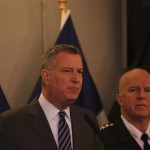In one of its most anticipated cases in decades, the U.
S. Supreme Court on June 26 upheld President Trump’s latest “travel ban,” delivering a key win to the Trump administration and one of its strict immigration enforcement stances. The Court concluded the president’s executive order—which largely targeted individuals from predominately Muslim countries—did not violate the Constitution’s Establishment Clause by favoring one religion over another, ruling that the order was a lawful exercise of the authority granted to the president by Congress.
The Supreme Court’s action now permits immediate enforcement of one of the president’s signature immigration policies that began in January 2017 and included repeated trips to the federal judiciary. Employers with workers from the affected countries—Iran, Libya, Syria, Yemen, Somalia, North Korea and Venezuela—now need to ensure proper protocols are put into place to spare employees from unnecessary risk and to preserve smooth business operations.
Given that the travel ban can be enforced immediately, employers should:
- Identify employees who are nationals of banned countries. The effect of the ban differs between the seven countries, so consult immigration counsel to be sure you understand how the ban applies to the country of origin for your employees.
- Instruct any affected employees who are abroad and have not previously been affected by the prior travel bans to return immediately.
- Caution workers from the affected countries not to travel outside the United States.
online pharmacy flexeril with best prices today in the USA
While the underlying litigation surrounding the travel ban will continue in the lower courts, assume the ban will be in effect for the foreseeable future.
- Tell foreign national employees to carry originals or clear copies of legal authorization to be in the U.
online pharmacy tadalista with best prices today in the USA
S. at all times and to consult with an immigration attorney before signing any paperwork presented by the Department of Homeland Security or the Department of State.
- Instruct employees to cooperate and present evidence of their U.S. immigration documentation and legal status if they are stopped by an Immigration and Customs Enforcement agent.
- Advise employees that if their temporary work visas are expiring, they should take immediate steps to extend those visas.
- Consider whether to sponsor employees who are here on soon-to-expire temporary work visas for permanent residency, if they are eligible.



